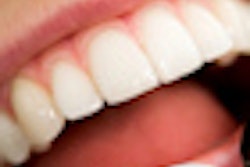Persistent dental plaque may increase the risk of dying early from cancer, according to a Swedish study published in the online journal BMJ Open (June 2012, 2:e001083; doi:10.1136/bmjopen-2012-001083).
Poor oral hygiene was linked to an 80% increased risk after accounting for other influential factors, according to the researchers from Karolinska Institutet and the University of Helsinki.
The researchers conducted a longitudinal study to see if plaque might be a risk factor for early death from cancer as a result of infection and inflammation, both of which are thought to have a role in up to 1 in 5 cancers.
They tracked almost 1,400 randomly selected Stockholm adults for 24 years (1985 to 2009). All participants were in their 30s and 40s at the start of the monitoring period, when they were quizzed about factors likely to increase their cancer risk, such as smoking and affluence. Their oral hygiene also was assessed to determine their levels of dental plaque, tartar, periodontal disease, and tooth loss.
While they had no overt periodontal disease, they did have substantial levels of plaque, the researchers found. By 2009, 58 people had died, around a third of whom were women (35.6%). Of these deaths, 35 were caused by cancer. The average age of death was 61 for the women and 60 for the men. The women would have been expected to live about 13 years longer, and the men an additional 8.5 years, so their deaths could be considered premature, the researchers said. Breast cancer was the primary cause of death among the women, with a range of different cancers for the men.
The dental plaque index in those who died was higher than those who survived, with values of 0.84 to 0.91, indicating that the gum area of the teeth had been covered with plaque, the study authors noted. The values among the survivors were consistently lower (0.66 to 0.67), indicating that the gum area was only partially covered with plaque.
When all the risk factors were considered, age almost doubled the risk of a cancer death. Males had 90% increased odds of dying. After the other potential risk factors known to be associated with premature death, such as lower education, smoking, frequency of dental visits, and lower income were accounted for, the associations between age, male gender, the amount of dental plaque, and premature death remained strong.
Dental plaque was associated with a significantly increased risk (79%) of premature death, although the absolute risk of premature death was low, with only 58 out of 1,390 participants dying after 24 years, the researchers concluded. However, they cautioned that their findings do not prove that dental plaque causes or definitely contributes to cancer.



















